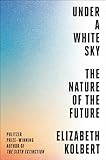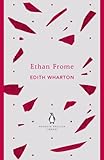We were getting ready to go to the community pool last weekend, packing all the things we needed: towels, sunblock, water, change of clothes, etc. My husband glanced in the bag to double-check everything and then casually asked if there was a reason I’d packed two books and a magazine.
“To read,” I told him.

 He looked at me. We have two children, one eight and one three. The three-year-old cannot swim. The eight-year-old can and requires an audience. There is perhaps a 10 minute window when I might be able to read uninterrupted. And yet I had to bring those books. Because…what if I did have time? And what if, when I got there, I just wasn’t in the mood to finish Elizabeth Kolbert’s Under a White Sky? (But what if I was?) What if, instead, I wanted to dig into Daniel Okrent’s history of prohibition, Last Call, which was due at the library very soon. Or what if I was in the mood for fiction, and I felt like reading the literary magazine that had just come in the mail?
He looked at me. We have two children, one eight and one three. The three-year-old cannot swim. The eight-year-old can and requires an audience. There is perhaps a 10 minute window when I might be able to read uninterrupted. And yet I had to bring those books. Because…what if I did have time? And what if, when I got there, I just wasn’t in the mood to finish Elizabeth Kolbert’s Under a White Sky? (But what if I was?) What if, instead, I wanted to dig into Daniel Okrent’s history of prohibition, Last Call, which was due at the library very soon. Or what if I was in the mood for fiction, and I felt like reading the literary magazine that had just come in the mail?
“You never read at the pool,” he said. “You stay in the water and swim.”
 This is true. My husband is the one who reads near bodies of water. He also has a realistic grasp on the number of hours in a day. He always brings one book with him on vacation, and he reads that one book. Sometimes he brings a book he’s already read, to guarantee that he will like it. This summer, he’s been bringing The Sun Also Rises to the pool, a novel he’s read at least three times before. It’s a great summer read. I love the part where they go fishing and have a picnic and keep the wine bottles cold in the stream. Just thinking about that scene makes me want to read that book again.
This is true. My husband is the one who reads near bodies of water. He also has a realistic grasp on the number of hours in a day. He always brings one book with him on vacation, and he reads that one book. Sometimes he brings a book he’s already read, to guarantee that he will like it. This summer, he’s been bringing The Sun Also Rises to the pool, a novel he’s read at least three times before. It’s a great summer read. I love the part where they go fishing and have a picnic and keep the wine bottles cold in the stream. Just thinking about that scene makes me want to read that book again.
Sometimes I think I have FOMO, but for books. It’s particularly acute in the summer. When I go on vacation, I always take too many books with me. On my first big trip with my husband—before we had children—I packed five novels and then bought magazines at the airport. I read the magazines on the plane and the novels languished in my bag. There was no time to read. We were traveling around Spain, walking and eating and talking. And I knew that would be the case. Yet I packed the books. In my mind, we were traveling to a place where we would somehow have time to see all the sights and also relax for several hours every morning, and to read books. A place with 30-hour days.
I ask myself where this fantasy comes from and I think—as with so many things—it goes back to childhood. When I was 10 years old, my family moved from New Hampshire to western Maryland. It was the year of Brood X, and I remembered the thick whine of the cicada song in the air when we arrived. I was bewildered by the humid weather and I didn’t know anyone. The kids down the street invited me to Vacation Bible School, so I went there, where I read the Bible and learned the Lord’s Prayer while my mother unpacked. When that was over, my mother took me to the library and told me to get out as many books as I wanted. When we got home, she gave me a glass of lemonade and the foldable wing chair and told me to find a spot outside in the shade to read—preferably a place where she could see me from her office window.




 And so began a summer ritual that lasted through middle school. I loved how unrestricted summer reading was. You could read as much as you wanted, and whatever you wanted—there was no one interrupting you to do homework in other subjects or to get ready for soccer practice. You could read more than one book at once, dipping into one and then another and back again. You could skim over the sections you didn’t like; nobody was going to quiz you. You could read books you were too young for—hello, John Irving!—and books you were too old for—hello, Anne of Green Gables for the 10th time! You could read comics and sci-fi and celebrity biographies alongside the classics. You could go ahead and read the books that you might be assigned in high school—Ethan Frome, The Catcher in the Rye, Catch-22, The Adventures of Huckleberry Finn, The Stranger—because what if you weren’t assigned them and then you didn’t get to read them?
And so began a summer ritual that lasted through middle school. I loved how unrestricted summer reading was. You could read as much as you wanted, and whatever you wanted—there was no one interrupting you to do homework in other subjects or to get ready for soccer practice. You could read more than one book at once, dipping into one and then another and back again. You could skim over the sections you didn’t like; nobody was going to quiz you. You could read books you were too young for—hello, John Irving!—and books you were too old for—hello, Anne of Green Gables for the 10th time! You could read comics and sci-fi and celebrity biographies alongside the classics. You could go ahead and read the books that you might be assigned in high school—Ethan Frome, The Catcher in the Rye, Catch-22, The Adventures of Huckleberry Finn, The Stranger—because what if you weren’t assigned them and then you didn’t get to read them?
Henry James once wrote, “Summer afternoon, summer afternoon—to me those have always been the two most beautiful words in the English language.” I’ve always assumed this quote refers to reading. I doubt James was hanging clothes out on the line or preparing dinner. He definitely wasn’t sitting by a pool and rating a cannonball jump on a scale of one to five at the request of a small child. I don’t begrudge James his summers, but I do assume that he, unlike most people I know, was able to hold onto them well into adulthood. My leisurely afternoons began to disappear midway through high school, when I started to work in the summers, and were gone by my 20s—though I did have more empty afternoons for reading in my 20s than I do now. But in my 20s, the Internet began to encroach on my time, and I also began to read with greater purpose—to learn the craft of writing or to gain knowledge to think critically about a particular issue. Of course, I read to be entertained, too, and to be absorbed in another person’s way of seeing things. That has never gone away. But the haphazard reading of my childhood summers is gone, and sometimes I think I’m chasing it, when I pack too many books.
Then again, maybe they’ll return to me, sooner than I realize. Just last week, our local library branch finally opened for browsing. My son headed to the children’s area and returned, 20 minutes later, with a tall stack. My pile was more modest—just two books. But as we walked home together and my son chatted about what he would read first, I took vicarious pleasure in his excitement. I wish I could say that I read alongside him, but the truth is cleaned up, attended to his younger sister, made lunch, and then finished up some of my own work. But summer isn’t over yet, and with a little planning, I may yet sneak in a few afternoons.
Bonus Links:
—A Summer Reading List for Wretched Assholes Who Prefer to Wallow in Someone Else’s Misery
—Alternate Routes: A Summer Reading Itinerary
—The Problem with Summer Reading
Image Credit: Pixabay









